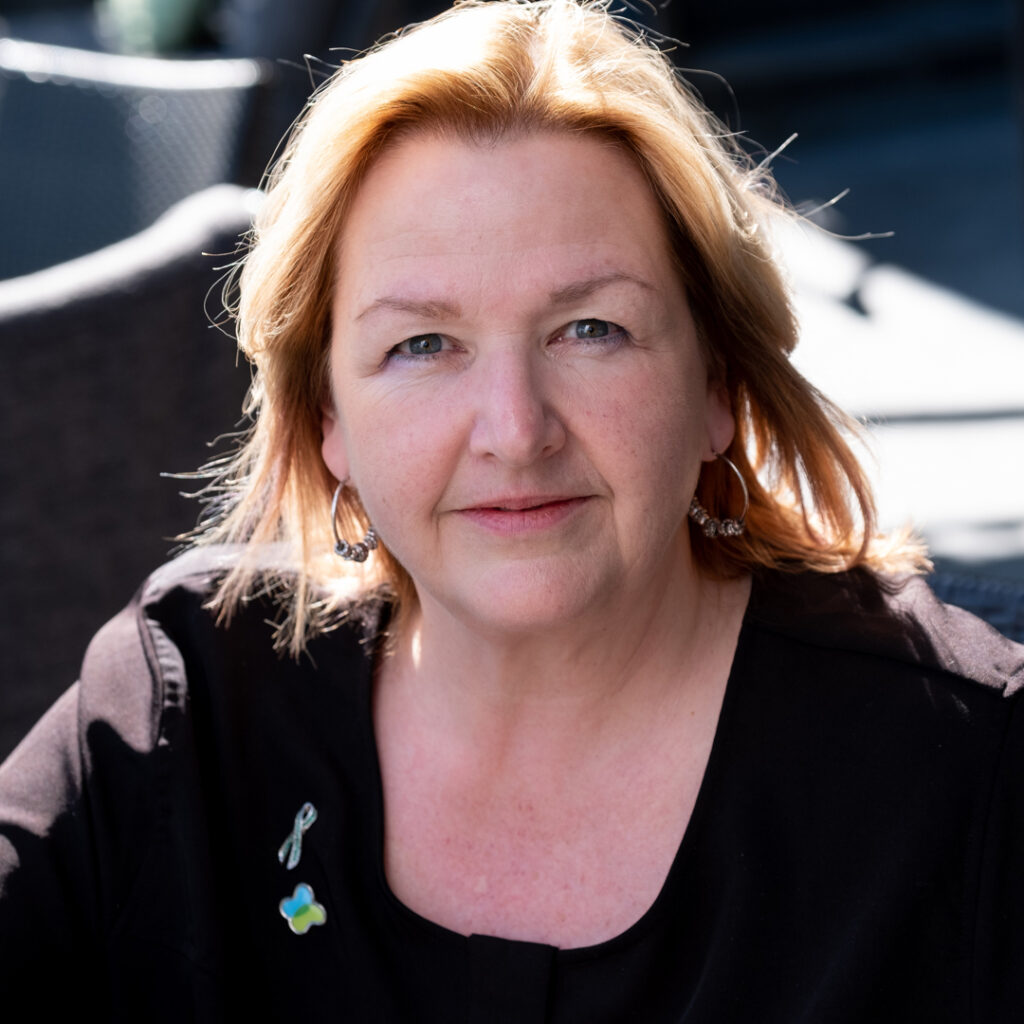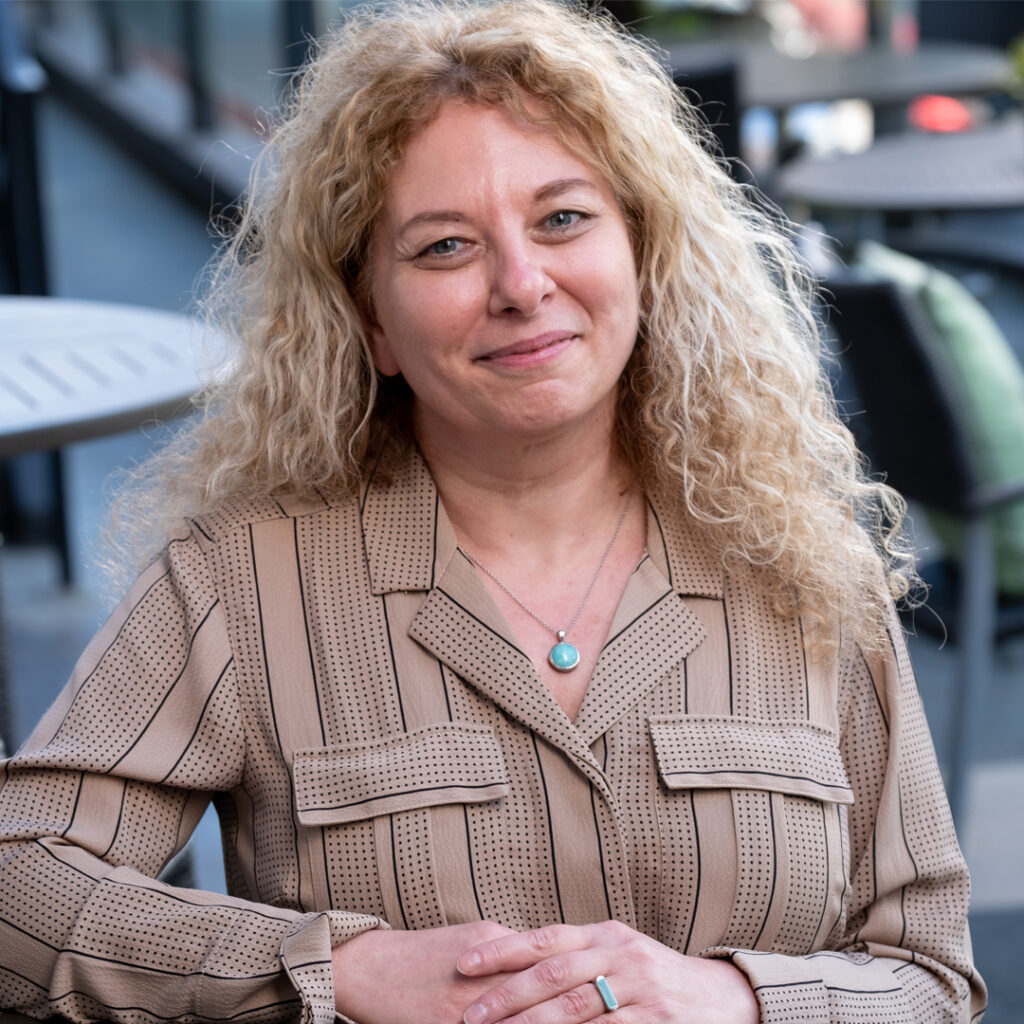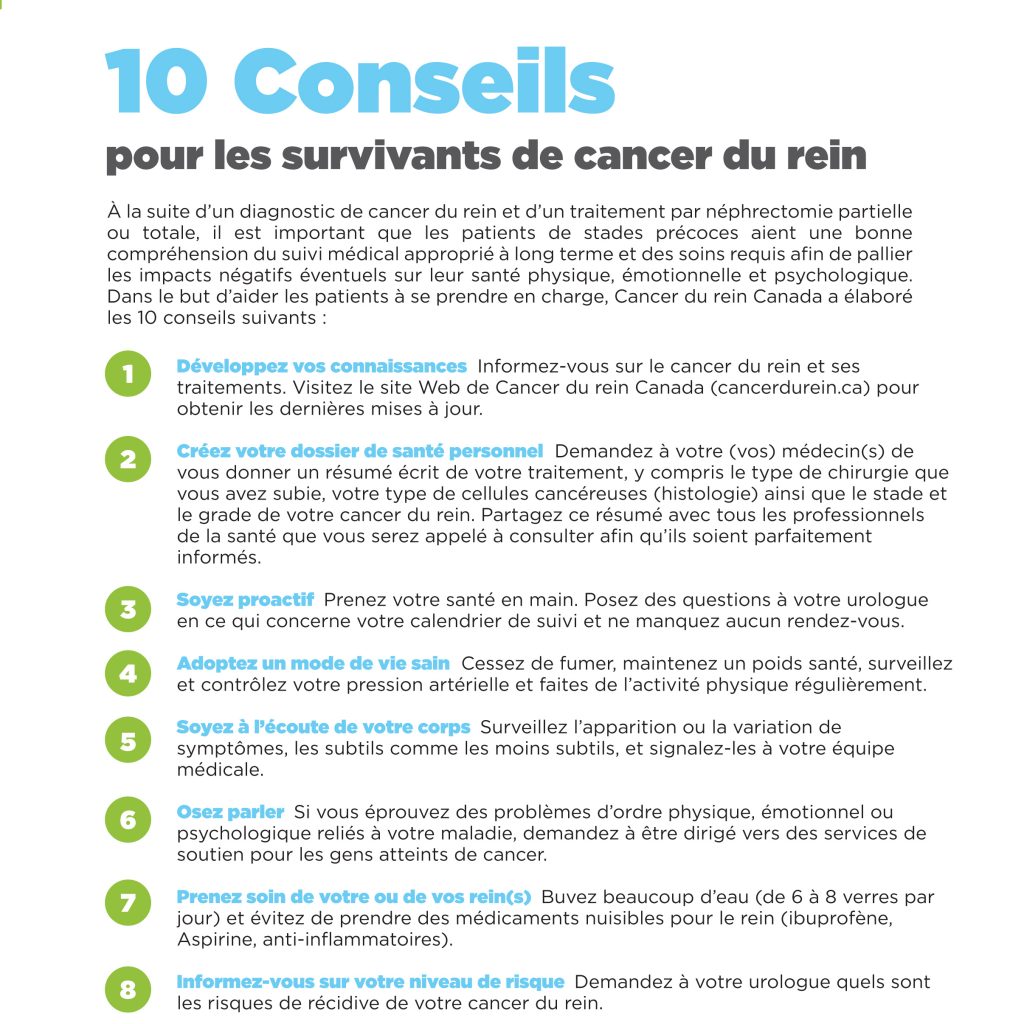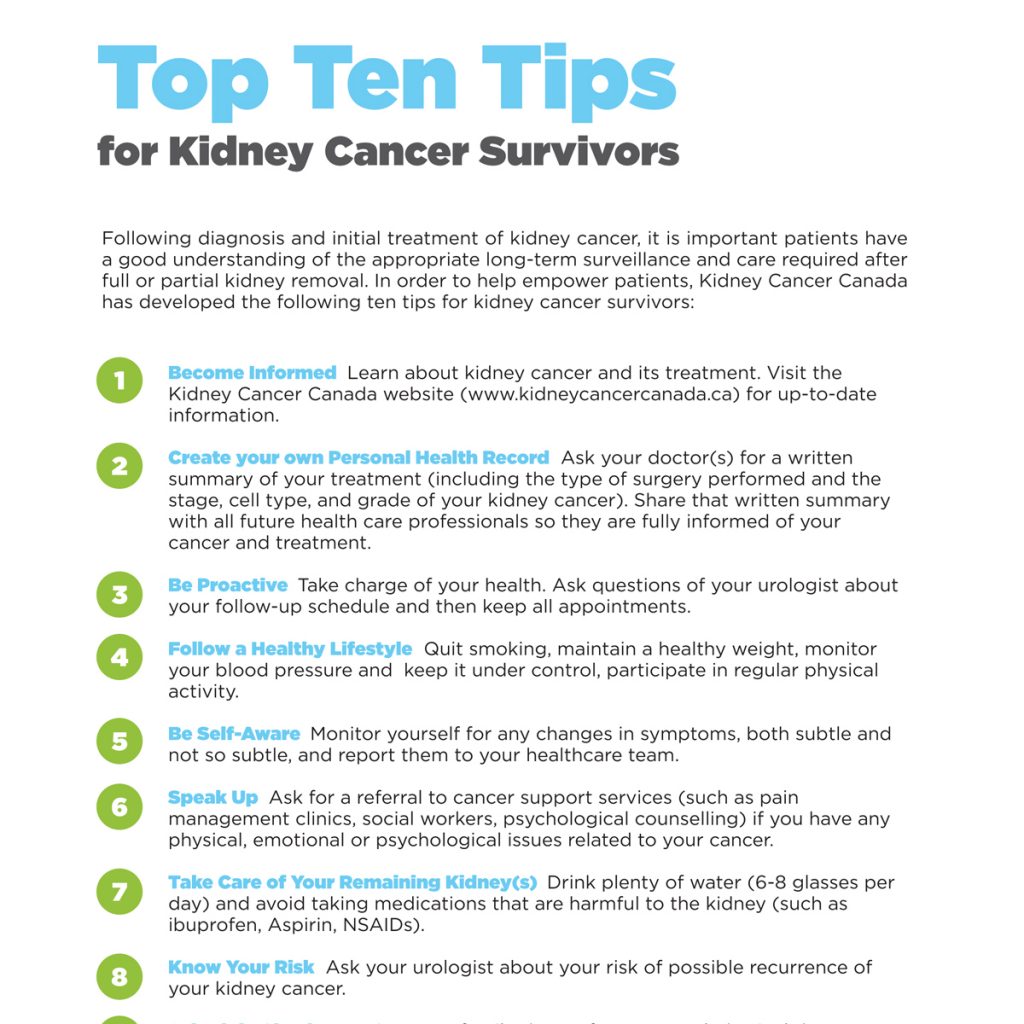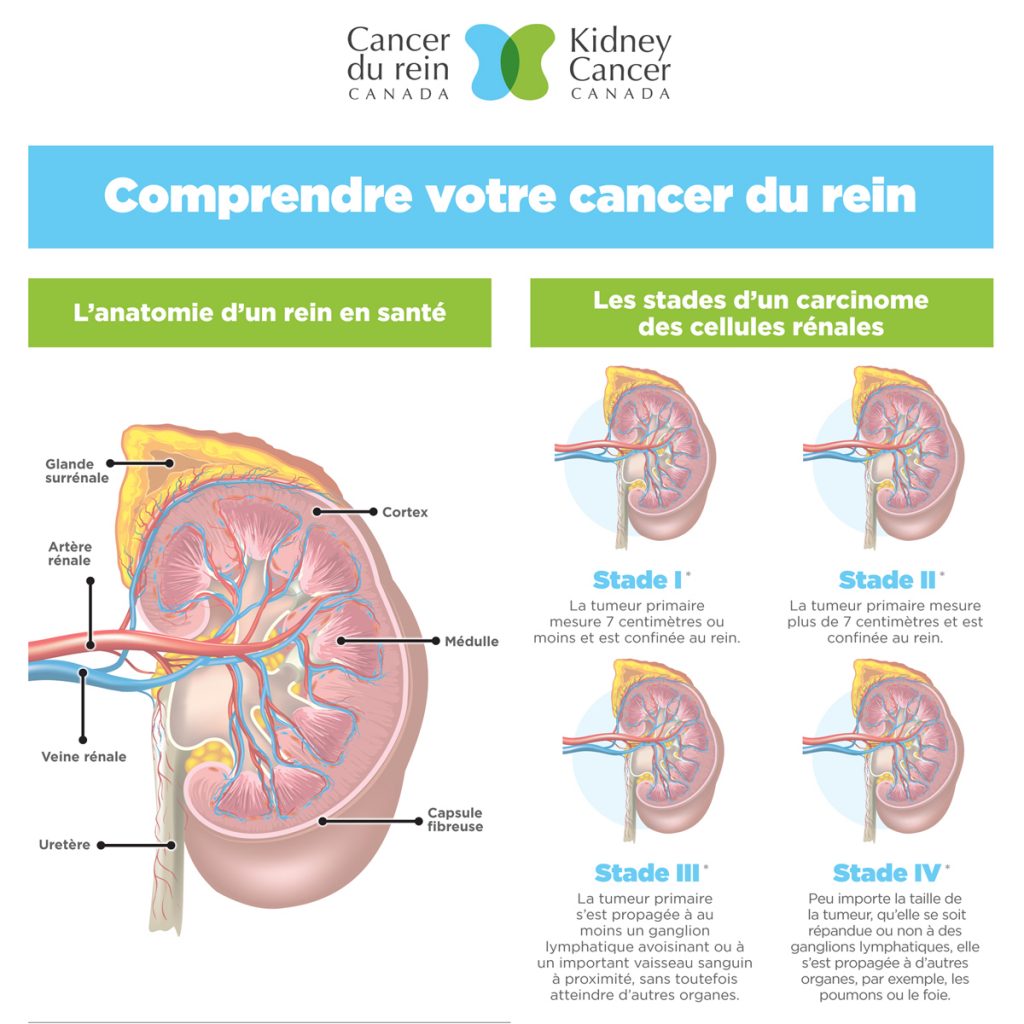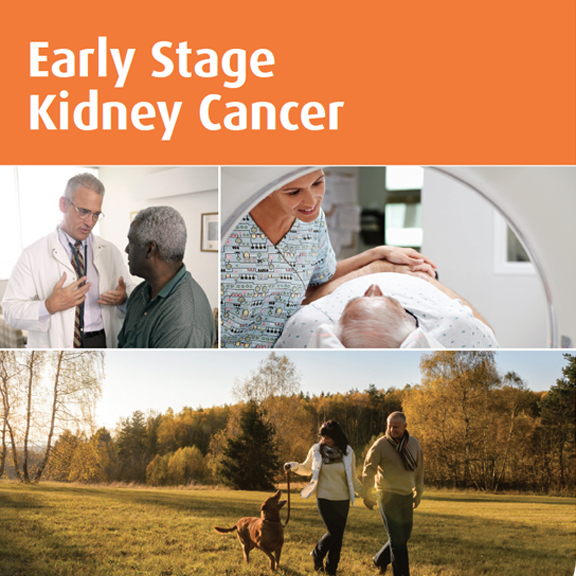Am I a candidate for active surveillance?
Active surveillance is the process where your urologist closely monitors your kidney cancer until symptoms appear or the growth rate of the tumour changes.
The joint decision between you and your urologist for active surveillance for the treatment of kidney cancer considers several factors and always includes an analysis of the benefits versus the risks to you. These factors include:
- The size of the tumour.
- Your age.
- The presence of tumours in both your kidneys.
- Whether you have only one functioning kidney.
- Whether you have other diseases that may affect your kidney function, now or in the future.
- Whether you have other diseases that may affect your ability to tolerate a surgical procedure.
HELPFUL TIP:
Ask your urologist, oncologist or radiologist to fill out and give you a copy of the Kidney Cancer Canada “Understanding Your Kidney Cancer” sheet. Print one and take it with you to your appointment. If your doctor doesn’t have the sheet, they can order free copies.
Active surveillance is usually reserved for patients who are not ideal candidates for surgery due to other medical conditions or patients with advanced age because these small tumours grow very slowly. Active surveillance may also be used for patients who have a genetic condition resulting in the kidney cancer (such as von Hippel-‐Lindau syndrome).
What size is my kidney tumour?
Active surveillance can be used for tumours less than or equal to 4 centimetres
Do I have other medical conditions or risk factors that would make surgery, ablation or SBRT risky for me?
Depending on the location of your tumour in the kidney, it is possible that some options may not be available to you. Typically, kidney cancer grows slowly – though there are certain types that have an aggressive growth factor. Your doctor will discuss risks and benefits of active surveillance, explain how they intend to monitor you and the frequency of imaging.
Do I have other medical conditions that threaten my long-term kidney function?
It is important to preserve the function of your kidneys if you have any medical condition that can threaten your future kidney function. Examples of these conditions include diabetes, high blood pressure, kidney stone disease, and chronic kidney disease.
With my advanced age, is it best to observe my kidney cancer to find out if it is going to grow quickly or not?
Many small kidney tumours, smaller than 4 centimetres grow very slowly and could possibly be benign (non‐cancerous).
Do I have multiple tumours in my kidneys?
Having multiple tumours in the kidneys may indicate a hereditary form of kidney cancer. We recommend you speak with you doctor about genetic testing.
Does my own diagnosis or a family history suggest a genetic predisposition to kidney cancer?
If your doctor suspects that you have a genetic tendency for kidney cancer you may have other tumour(s) in the future. In these cases, it is best to consider ablation techniques to conserve as much kidney function as possible.
Do I have other medical conditions that would make an ablation procedure risky for me?
If you have other medical conditions that would make a ablation risk for you, your doctor may consider the use of another technique for your treatment.
Note: Active surveillance does not necessarily preclude you from subsequent options of surgery, ablation, or SBRT, but you should discuss the potential of subsequent treatment before you undertake this option.





